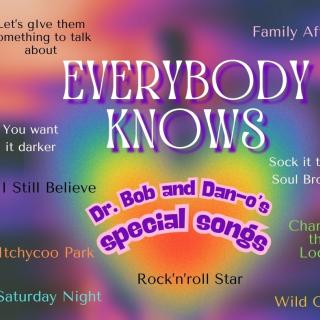Matt Monta has long been one of Columbus’ best musicians and writers. On April 27, 2018 he will be releasing “Restless Disposition,” his long-awaited follow up to his excellent 2015 album “Where you Find Love.” The Free Press’ Ed Forman sat down with Matt to discuss the new disc, life as a full time musician, and political influence on music.
FP: It’s been about 2 ½ years since your last album, “Where You Find Love.” What have you been up to in the meantime?
MM: Since that time I have quit my 10 year life as a desk jockey and have gone to do music full time. I am devoting 100% of my time to songwriting, traveling, performing, working on being a better guitar player, singer, songwriter and doing all the things that are important to making a successful job out of being a musician, which is not an easy career choice. We put out an EP in between then of six songs from my solo record and we’ve been working on developing ourselves as a band, developing our skill in the studio to make records that are more complex than what we did with “Where You Find Love.” We worked with Joe Viers [engineer at the Sonic Lounge Studios] on this new album and we spent two full weeks in the studio. By the time we got in there, we had a lot of ideas and he worked really well with us. Often, he was able to anticipate a lot what we were trying to do and helped us achieve those things.
FP: The album seems a lot younger than the last one did. It is a darker album but it does seem a little bit less cynical. Are you developing more faith in humanity?
MM: Let’s not go that far! I mean there’s less of that dark, sort of sarcastic cynicism than you might find in a song like “Going Now,” which is kind of a broadside against jobs or things that you want to escape from. But, some of that is still there in this album and songs like “Your Alarm’s Going Off” for example, are about being trapped in a desk job and about all the things, the mundanity and the routine that come along with it. “President’s Face,” I feel like, is quite an indictment on society, the way we’ve let Nazis take things over--not without a fight but it’s happened, and kind of looking at that. I don’t disagree with you -- my life is in a lot different place now than it was in 2015 or so.
FP: You mentioned “Your Alarm’s Going Off.” I was listening to that song. Are you trying to wake somebody up with that?
MM: Possibly. So I have an alarm on my phone that rings every day at 5:00 pm and I’ve had that on my phone for a long time. Now it’s sort of the type of thing where I use that to reorient myself to what time of day it is because I’m not working a 9-5. So, for me it’s something that grounds me and make me go “OK, it’s 5:00. Where am I at?” When I was driving to meet you it actually went off. That’s what it’s based on. It could be a wake-up call, I think to some degree. I think if you worked an office job you would probably relate to it.
FP: You mentioned the “President’s Face” song. What’s that one all about? You mentioned it’s an indictment.
MM: Yeah. There’s a lot of different interpretations people have about what it means when I say I’ve got a card with the President’s face.
FP: I was wondering what card are we talking about?
MM: The way that song came about was when I donated to a political campaign for the Presidential election, I got a Democratic Party membership card and it had Obama’s face on it. As much as right-wingers and Republicans try to deny that Barack Obama was a legitimate President, here I was with a card with the President’s face on it. No matter how much they try to undo his legislative accomplishments or wipe him from the slate of history, he will always have been our President. So I was looking at that and the cadence kind of came to me. Then I started thinking violence surrounding the toppling of Confederate statutes and the rise of white nationalism and looking at how our government is treating immigrants and how we communicate with each other on a day to day basis, which has changed dramatically from just 10 years ago. It all came out at once with that card in my hand.
FP: How is the political climate affecting your songwriting these days?
MM: So, it’s making me think a little more critically about what people do and how our environment affects the decisions we make. I’m looking at I think are grounded, partially in looking at where I’ve come from growing up and then also looking at what are people’s expectations and are those being met and the answer is usually no. So the cynicism is still there but it’s taking different forms and different approaches. I’ve written some fairly hopeless songs since we recorded this album but I wouldn’t say I’m writing protest songs per se but what did [Bob] Dylan say- all my songs are protest songs.
FP: That was actually my next question. He did say that all of his songs are protest songs. Do you agree with that for your own stuff?
MM: Yeah. I guess so. I don’t think that all my songs are necessarily protest songs in the traditional sense that Dylan was accused of writing protest songs. I write about things that happen to people and I write about things that happen to me and happen to friends of mine. It’s not as though I trying to write dance music, so if someone wants to take what I’ve written and apply it to a political framework or even a social framework, by all means, of course, because that’s where I’m writing from.
FP: Your first single on the album is “I Won’t Be Scared.” That song repeats that title but it also says “this time”. So what were you frightened of before?
MM: George W. Bush? (laughs) I kind of wrote this around the time Obama became our president and there was a little more optimism than there is now. As things as progressed since 2008 it’s become more and more imperative that I play the song. And it resonates with people because anxiety is a fact of life now. We can look at how the internet and social media impact how we get our information and it’s anxiety inducing at its core. I have friends who tell me they have left Facebook and they feel like a better human being now. If I didn’t have to rely on it for music, I would quit too. I think it’s outrageously stressful and that combined with the fact that Nazis are taking control of the Government-- it’s enough to really shake anybody. So I think that the song has gained new relevance and importance but not everyone necessarily feels that from the political place. I met a woman in Baltimore who said she had just been through a divorce and a bunch of really awful things had happened in her life. She said that she recently told herself that she wouldn’t be scared or afraid of anything and that she would go out and live her life. So to her, that song had a profound personal meaning.
FP: I can take that one of two ways. The first is you really made that decision in your heart and the second is, you think in some ways you’re singing that to build up your courage.
MM: Oh absolutely. Keeping my head above water is something where I now struggle-- listening to NPR the other day was an accomplishment for me because normally I start screaming and turn it off because I can’t believe what I’m hearing. It’s hard to keep up with the news because it’s just one thing after another after another, each story more ludicrous than the last. I tell myself I can’t be afraid to stay involved or stay conscious of what’s going on regardless of what I’m doing whether it’s writing songs or if it’s going out and supporting people.
FP: On a couple of the songs, “Life That Hangs by Chains” and “Infinite Loops,” I’m hearing a lot of Springsteen but Springsteen from the “Born to Run” album. Sort of protect a lover at all costs. Am I reading that correctly at all?
MM: I would say that this is an accurate origin for the songs. “Infinite Loops” is about the habits and patterns we weave with ourselves and with others that are destined to repeat themselves no matter how much we may try to resist. “Life that Hangs by Chains” is really that. The chorus is “to shelter you from the hatred and confusion, shelter from the chaos and the pain, material delusions, shelter from the life that hangs by chains”. Reconciling that relationship with the need for freedom from the toils of everyday life. You’re right on the money.
FP: It’s amazing how the world can sort of work its way into interpersonal relationships. Speaking of which, in some of your other songs, it seems like the end is sort of in sight. Particularly in the “Man You Left Behind,” there seems to be a lot of regret from something which has ended or is probably going to be ending at the end of the season.
MM: “Man You Left Behind” is a pretty straight narrative—not so much regret for the loss as regret for what was. With “Seasonal Lover” it’s a little bit like being stuck in a position and reminiscing and being nostalgic for something that was maybe more romantic in your head than it actually was. And then bridging that gap of reality and nostalgia with some sort of distraction.
FP: Has your band line up changed at all since the last album?
MM: Yeah. So David Butler, who played keys for us, is no longer a full time member but he did contribute to the album so any organs, keys, things you hear like that is going to be David.
FP: Who is singing background vocals?
MM: Savannah Freeman is singing on I Won’t Be Scared and Life that Hangs By Chains. Her husband Ron, who is the other half of her group Lost Orchards, is on I Won’t Be Scared, but the majority the backing vocals are done by Jamie Mollisee, who is our lead guitar player.
FP: Your CD release show is coming up on the 27th. Who is playing with you?
MM: We’ve got sort of a grungy, twangy, trio called Mobile Home, who is just a kick ass band who plays cool songs and does cool harmonies. I think people who dig what we do are going to really dig what they do. Ron and Savanah are going to sing with us. We’re recreating the album as best we can in a live experience with everybody who was a part of it.
FP: That’s going to be at Rumba?
MM: Correct. Rumba Café at 9:00pm on Friday, April 27th.
FP: Will it be loud?
MM: Oh yeah.



